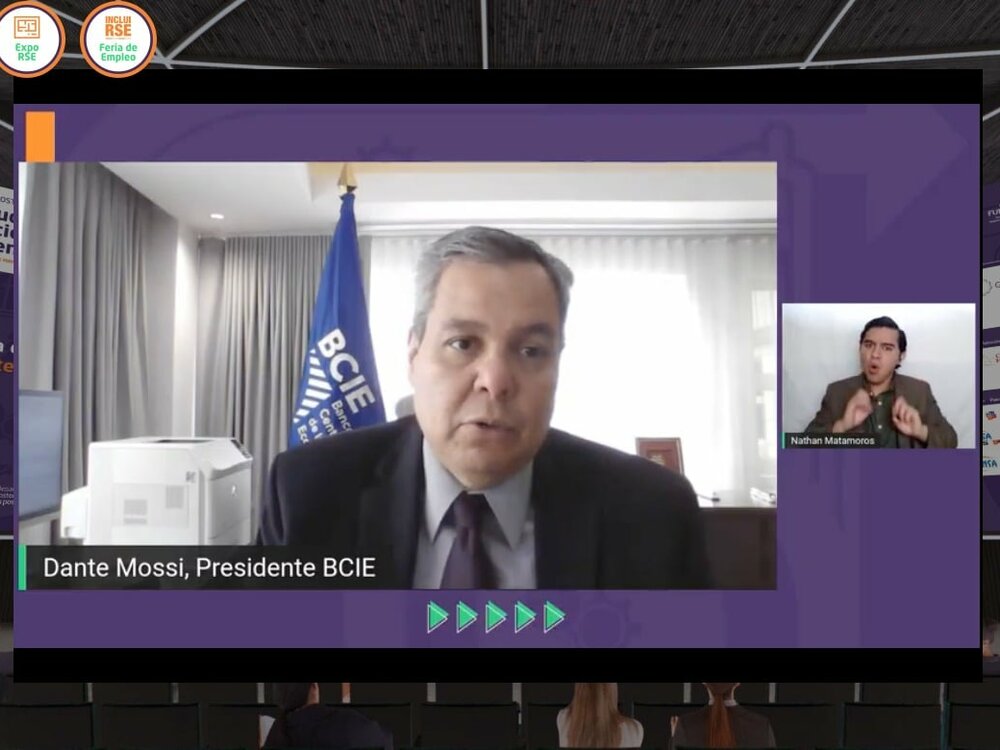CABEI highlights efforts to improve the quality of life of Central Americans in a sustainable manner

During Corporate Social Responsibility and Sustainability 2021 week, CABEI Executive President Dante Mossi discusses the multilateral development institution's key role.
Tegucigalpa, May 18, 2021.- Aligned with its 2020 - 2024 institutional strategy, the Central American Bank for Economic Integration (CABEI) focuses its efforts on ensuring that its financial solutions and operations respond to its five strategic axes, two of which are focused on environmental sustainability and human development and social inclusion.
This was stated by CABEI Executive President, Dr. Dante Mossi, during a master conference on "Sustainable Banking and its impact on Human Rights", within the framework of the Corporate Social Responsibility and Sustainability 2021 Week sponsored by the Honduran Foundation for Corporate Social Responsibility (FUNDAHRSE).
Along these lines, he commented that historically CABEI has approved close to US$2 billion to the health sector, around US$1.197 billion to the education sector, which includes culture and sports, and approximately US$760 million in the public safety sector. Other initiatives include support for the economic reactivation of micro, small, and medium-sized enterprises (MIPYMEs); job creation, and access to basic services such as water and sanitation, among others.
Mossi also highlighted CABEI's commitment to environmental and social sustainability. During the last five years, CABEI has approved US$4.989 billion in climate change adaptation and mitigation operations. Examples include the Central American Dry Corridor and arid zone programs in the Dominican Republic and the CAMBio Project.
This responsibility with the environment is also reflected in the Bank's daily operations, managing resources efficiently, for example: the buildings in Honduras, El Salvador and Costa Rica have been subject to Leadership in Energy and Environmental Design, LEED, certification in the first case; the Environmental Management System Certification ISO 14001:2015 in the second, and Carbon Neutrality in the third.
Since 2010, volunteers in the six countries of the region have been planting trees every year to offset the environmental footprint generated by paper consumption in the Bank's operations. To date, 17,230 trees have been planted in vulnerable areas affected by climate change. Biodiversity protection activities have also been carried out in Guatemala and Panama, such as the release of turtles and the cleaning of beaches.



